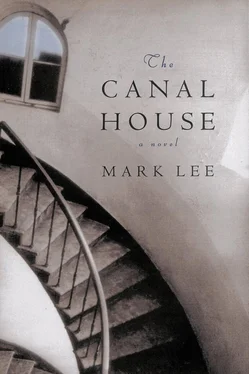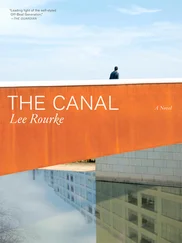“Great,” I said. “Sounds like the New York subway.”
Billy made a point of shaking our hands, then we hurried over to the area where the Acholi refugees were living. Isaac stood alone beside one of the tents. He held his pink flip-flop sandals as if he was waiting for permission to put them on.
“Morning, Isaac,” Daniel said. “You ready to go?”
The boy stared at us with those dead eyes of his. It looked as if every possible emotion had been squeezed out of him. “I’m ready.”
Standing to one side, I was the first person to see Julia approach us. It was still cold, and she wore a sweater along with her khakis and work boots. I’ve photographed a fair number of relief workers and I’ve learned how their faces change because of the job. The first time they encounter a war or a famine, they look startled and somewhat scared. After six months, their faces begin to relax and they seem aware of problems even before they happen. After two years or more, many of them become cynical and bored. They spend their spare time calculating the total per diem paid by their aid organization. But a few relief workers remind me of Giacometti’s sculptures: they look as if they’ve been cut and chipped away until only their essence remains.
Julia was just moving into this third stage, but it was too early to tell which way she would go. She came toward us with a long-legged confident stride. In fact, stride was a good word to describe her. She didn’t seem to be afraid of anything.
“I want to talk to Isaac.”
“Of course.” Daniel stepped away from the boy and crouched in the dirt. He took out a cigarette, cupped it in his hand, and tried to light a match in the wind. I knew that he wasn’t going to argue with Julia. Although Daniel wrote about wars, he disliked confrontation. It wasted time and diverted him from his constant movement forward.
Julia turned to Isaac and smiled brightly. “I just had a wonderful idea, Isaac. I know you wanted Mr. McFarland’s watch. That’s why you agreed to be his guide. But look …” She unstrapped her own watch and offered it to the boy. “You can have mine. It’s yours if you don’t go with him.”
Isaac examined Julia’s face, then glanced at Daniel. What was he looking for? I wondered. How would he make his choice? Julia obviously cared about Isaac. She wanted to save him and it showed. Daniel was cold and expressionless, but I could see that Isaac was far more comfortable with that lack of emotion. Julia’s compassion was not part of his world.
Isaac dropped his sandals and stepped into them. “I’ll go with Mr. Daniel.”
Julia’s lips were pressed into a tight line. I expected her to start arguing with Daniel, but she turned to me. “I think it’s obvious that this expedition with Isaac wasn’t your idea. Stay here and you can go back to Nairobi in our supply truck.”
I felt ashamed for a few seconds, but that emotion was pushed away by a surge of anger. I could have lectured her about the responsibilities of journalism, but that would have been a lot of words piled up over the truth. Last night I had accepted Daniel’s plan because I needed to please my employers and I didn’t want to look like a coward. Sometimes I think all men are still six years old, daring each other to kick a dead snake in the middle of the road.
“I’m going with them.”
Julia shook her head and turned away from me. She touched the boy’s shoulder. “We’ll be waiting for you, Isaac. You can always come back here.” She glanced at Daniel one last time and walked away. A gust of wind passed through the camp and smoke drifted through the gaps between the tents.
• • •
ISAAC STROLLED OUT of the camp and we followed him. The boy’s flip-flops made little slapping sounds with each step. As we crossed the rocky strip of dirt that surrounded Kosana, I felt like we were on a beach, approaching a vast ocean. For a few hundred yards we stepped around patches of weeds and thornbushes; then we were lost in the grass. The thick yellowish stalks brushed against my chest and shoulders. A flock of doves rose up from the earth.
Isaac had only a general idea about where we were going. The path of crushed grass divided several times and veered off in different directions. At each juncture the boy stopped and checked the horizon, then took the path that led to the morning sun. After a half hour of slow progress, he led us up a crumbly dirt slope and paused at the top. We looked down at a riverbed about thirty to forty feet wide. During the rains it would be filled with a surge of muddy water from the surrounding hills, but now it was a dry channel of reddish sand and lichen-covered boulders. Instead of forcing our way through the grass and thickets, we were going to follow this natural pathway.
“Where are we going?” Daniel asked Isaac.
“To the mother tree.”
“What’s that?”
Isaac shook his head. Couldn’t explain.
“How far is it?”
The boy shook his head again.
“How many nights’ sleep?”
“One night. Then a little farther.”
Daniel took off his watch, pulled a piece of twine out of his pocket, and threaded it through the strap’s buckle. He tied the ends of the twine together and formed an improvised necklace with the watch as a pendant. “Here you go,” he told Isaac and slipped the loop over the boy’s head.
Isaac touched the watch cautiously, then held it up and stared at the second hand ticking its way around the dial. Satisfied, he nodded and sighed. It was the first time I had seen the boy show any sort of emotion.
“Is that what you wanted?”
“Yes, Mr. Daniel.”
“Wear it under your shirt and people won’t take it.”
Isaac led us down into the riverbed and we followed it north. By eleven o’clock it was hot and sweat flies began to swarm around us. Isaac walked carefully, picking his way around the boulders. He never seemed to get tired or thirsty.
The sun rose higher in the sky and the shadows darkened. We rationed water, trying not to drink more than one bottle per hour. I started to get worried when we finished the third bottle, but then we found a mud hole with a few inches of water on the surface. We filled the bottles and dropped in iodine tablets, but the water still tasted like rocks and sand.
Larks and warblers darted in and out of the brush. A gerund gazelle with a long slender neck nibbled on a thorn tree, then ran away when we stumbled into view. The riverbed narrowed to about twenty feet across and the boulders got larger. We scrambled over rocks, knocking off pieces of lichen. I slipped twice and banged my knee. When we came around a bend two miniature deer were hiding in the thicket on the right bank. They were dik-diks, so small and delicate that they seemed to come from a gentler place than the rest of the world. I stared at them, forgetting to take out my camera, but then Isaac made a noise and they disappeared into the grass.
Daniel called a halt around four in the afternoon and we spent the next few hours pulling dead branches from trees for a pile of firewood. We camped on a patch of sand near the shelter of two boulders. I dug a pit with my hands and lit a fire as the sun went down.
The cicadas had been chirping all day long, but they got louder at nightfall. Their sound reminded me of a heartbeat, something steady and physical that came with its own rhythm. Birds called from the darkness and a pack of wild dogs greeted each other with a high-pitched yittering sound.
Some people pay thousands of dollars so they can fly to Africa and sit by a campfire under the stars, but sleeping outdoors always makes me nervous. If you take away our guns and cars and drop us into the middle of the wilderness, we become scrawny little apes with no fangs or claws to defend ourselves. Forget about art and philosophy; we’re lunch.
Читать дальше












